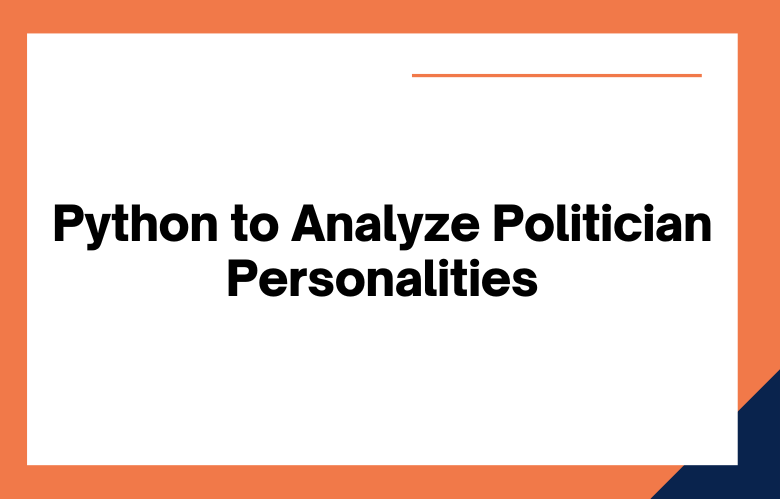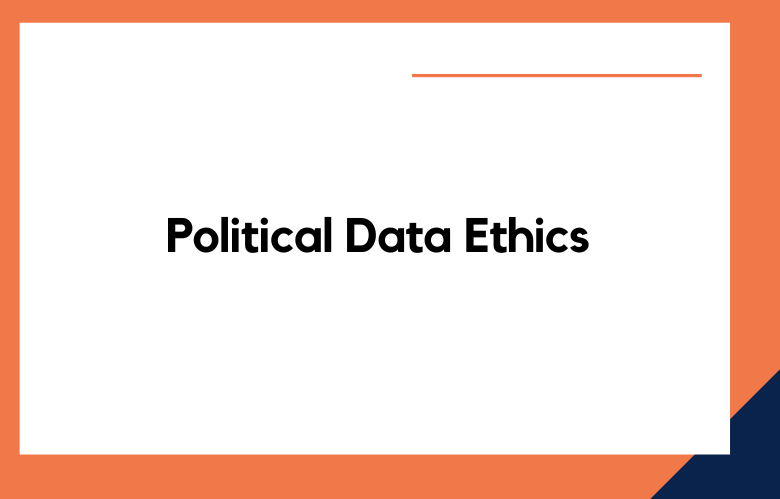Today, it’s essential to understand how politicians communicate and how their personalities shape their communication. With the help of Python, we can now analyze politicians’ personalities more accurately than ever before.
We will explore how Python can analyze politicians’ personalities and what insights we can gain from these analyses.
Python for Personality Analysis
Python has become increasingly popular for personality analysis in recent years.
The language is versatile enough to handle various tasks such as text analysis, sentiment analysis, and social media data. This versatility makes it an excellent choice for exploring politicians’ personalities.
Python can analyze politicians’ language to determine if they are expressing positive or negative sentiments. This analysis can provide valuable insights into politicians’ feelings about specific topics or people.
Sentiment analysis is instrumental when understanding the underlying message behind a politician’s words.
The power of natural language processing (NLP) enables us to take things one step further by allowing us to dive deeper into text-based data and uncover hidden patterns.
NLP can identify trends in speech patterns over time, classify different text types, and even extract key phrases from text documents. These features make NLP incredibly useful for analyzing politicians’ communication styles over time or across different contexts.
Unlocking Politician Personality Traits with Python
Python is a powerful tool that allows us to analyze data to gain insight into otherwise hidden patterns or trends.
In this case, it can be used to uncover politicians’ positive and negative personality traits.
For example, using Python, we can examine politicians’ speech patterns and determine whether they are more likely to be outgoing or introverted, take risks, or play it safe when making decisions.
We can also use Python to analyze social media posts or other written materials politicians produce to identify underlying emotional tendencies.
Furthermore, Python can be used with AI technology such as natural language processing (NLP) and machine learning (ML).
These technologies allow us to go beyond simply analyzing text and understand how certain words or phrases might influence a politician’s behavior.
This analysis gives us an even deeper insight into the inner workings of a political figure. It helps us better understand their motivations and the drive behind their decisions while in office.
Python and Natural Language Processing (NLP)
Natural language processing (NLP) is a field of computer science that enables machines to understand human language.
Using NLP and Python, you can quickly and accurately analyze large amounts of text data rapidly and accurately.
This allows us to make sense of the words used by politicians in their speeches, interviews, and other public statements. We can then use this information to conclude their personality traits and political tendencies.
Politicians’ Personality Traits through Text Analysis
We can detect patterns in politicians’ speech that indicate certain personality traits using NLP tools such as sentiment analysis and topic modeling.
For example, a politician who frequently speaks about patriotism may be viewed as more patriotic than one who does not mention patriotism as often.
Similarly, politicians who speak positively about their opponents may be seen as more reasonable or diplomatic than those who express negative sentiments toward their opponents.
Analyzing these patterns in politicians’ speeches, we can better understand their actual character traits.
Analyzing Political Tendencies with Machine Learning
Machine learning algorithms are another way to gain insights into politicians’ personalities through text analysis.
These algorithms are designed to scan large amounts of text data for specific topics or themes that may indicate certain political tendencies.
For instance, if a politician consistently speaks out against taxes on the wealthy, it could indicate they favor more conservative economic policies than those who advocate for higher taxes on the rich.
In this way, machine learning algorithms can provide valuable insights into the political ideologies of various politicians.
Python for Data Analysis
Python has been used successfully in the field of data analysis for years.
Its wide range of libraries and modules makes it an incredibly versatile tool for processing large amounts of data quickly and accurately.
It also allows us to visualize the results of our analysis. This makes it an ideal tool for analyzing a politician’s personality.
Natural Language Processing (NLP) with Python
NLP is a branch of machine learning that focuses on understanding natural language (e.g., English). With NLP, we can use Python to process text from speech or written documents to gain insights into politicians’ personalities.
For example, we can analyze their word choice, sentence structure, the emotions conveyed through their language or even the topics they focus on most often when discussing specific issues.
These insights give us a better understanding of who politicians are and what drives their decisions and actions.
Sentiment Analysis with Python
Sentiment analysis is another way to use Python to gain deeper insight into political personalities.
Using sentiment analysis algorithms, we can analyze the sentiment behind each statement made by a politician to determine whether they are expressing positive or negative emotions toward specific topics or ideas.
This helps us better understand how they feel about policies or initiatives they may discuss in public forums such as debates and speeches.
Consulting for Analyzing Politician Personalities with Python
Python is a powerful programming language with many libraries and APIs that can analyze politicians’ personalities.
It provides a wide range of deep learning, natural language processing, data visualization, and web development capabilities.
By utilizing the various Python libraries and frameworks, like pandas, NumPy, matplotlib, and sci-kit-learn, it is possible to analyze politicians’ speeches or written content to gain insights into their personalities.
For example, sentiment analysis can reveal the emotions or opinions of politicians on specific topics; topic modeling can identify trends in issues discussed by politicians, and part-of-speech tagging can determine if certain words are used more often by particular individuals.
Python can also be used for clustering methods to uncover similar personality traits among politicians.
Through machine learning algorithms such as linear regression, decision trees, and random forests, one can predict the behavior of specific political figures based on their speech patterns and other traits.
Python’s web development capabilities enable the creation of interactive dashboards, making it easier to compare multiple politicians simultaneously.
Given its wide range of capabilities for analyzing politician personalities with Python, this technology provides an invaluable tool for researchers seeking to better understand political leaders’ mindsets.
Conclusion
Analyzing politicians’ personalities is invaluable for understanding how politicians think and operate on different levels.
By leveraging the power of Python, we can do just that.
Through sentiment analysis, natural language processing (NLP), and other powerful tools, we can gain valuable insights into how politicians communicate with each other and the public.
So, if you’re looking for an effective way to better understand how politics works today, look no further than Python!
Call: +91 9848321284
Email: [email protected]











